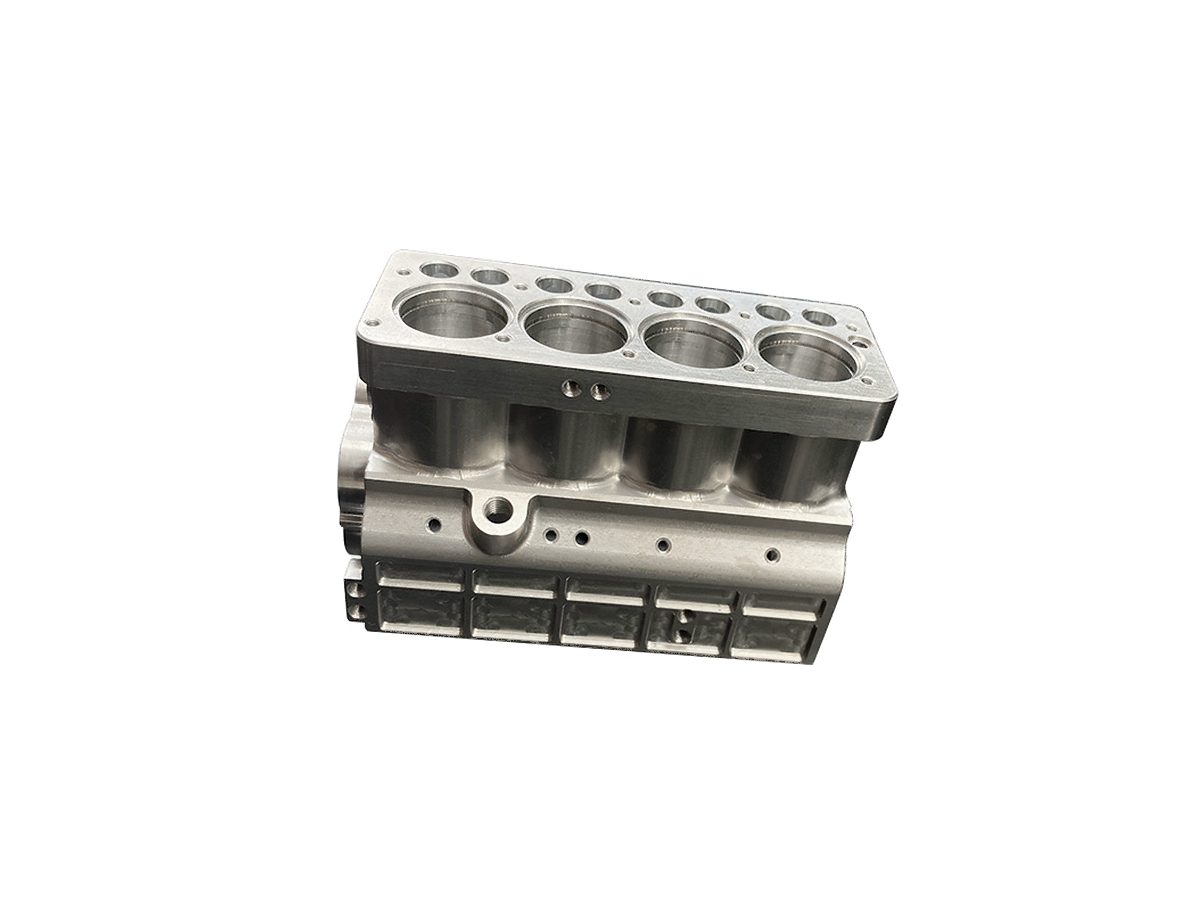How Titanium Alloys Like Ti-6Al-2Sn-4Zr-2Mo Are Shaping the Future of Agricultural Machinery
Introduction
The agricultural machinery industry is increasingly driven by the need for durable, lightweight, and corrosion-resistant materials. Titanium alloys, particularly Ti-6Al-2Sn-4Zr-2Mo (Grade 4), offer exceptional strength-to-weight ratios, superior fatigue resistance, and outstanding corrosion performance, making them ideal for critical agricultural components such as harvesting blades, precision machinery parts, structural frames, and hydraulic system components.
Advanced CNC machining techniques enable manufacturers to precisely produce Ti-6Al-2Sn-4Zr-2Mo parts tailored for agricultural applications. The high precision achieved through CNC machining ensures accurate geometries, tight dimensional tolerances, and excellent surface finishes, directly improving machine reliability, durability, and operational efficiency in challenging agricultural environments.
Titanium Alloys for Agricultural Machinery
Material Performance Comparison
Material | Tensile Strength (MPa) | Yield Strength (MPa) | Density (g/cm³) | Typical Applications | Advantage |
|---|---|---|---|---|---|
1050-1150 | 950-1080 | 4.54 | Blades, structural components | High strength, superior fatigue resistance | |
950-1100 | 880-950 | 4.43 | Hydraulic systems, fasteners | Excellent strength-to-weight, good machinability | |
620-780 | 483-655 | 4.48 | Tubing, fluid lines | High corrosion resistance, superior formability | |
860-950 | 780-830 | 4.48 | Lightweight structures, brackets | Good strength-to-weight, corrosion resistant |
Material Selection Strategy
Choosing the optimal titanium alloy for agricultural machinery involves assessing strength, corrosion resistance, and operational demands:
Harvesting blades, structural components, and heavily loaded parts requiring high tensile strength (up to 1150 MPa) and superior fatigue resistance are best fabricated from Ti-6Al-2Sn-4Zr-2Mo (Grade 4), enhancing machinery longevity and performance.
Hydraulic systems, precision fasteners, and components demanding excellent machinability combined with high strength (up to 1100 MPa) benefit from Ti-6Al-4V (Grade 5), ensuring both durability and manufacturing efficiency.
Tubing and fluid lines needing high corrosion resistance, superior formability, and moderate strength (up to 780 MPa) are ideally suited for Ti-3Al-2.5V (Grade 12), delivering reliable performance in harsh agricultural conditions.
Lightweight brackets and structural frameworks requiring good corrosion resistance and moderate strength (up to 950 MPa) utilize Ti-5Al-2.5Sn (Grade 6), reducing equipment weight and improving fuel efficiency.
CNC Machining Processes
Process Performance Comparison
CNC Machining Technology | Dimensional Accuracy (mm) | Surface Roughness (Ra μm) | Typical Applications | Key Advantages |
|---|---|---|---|---|
±0.02 | 1.6-3.2 | Basic frames, mounting brackets | Cost-effective, reliable accuracy | |
±0.015 | 0.8-1.6 | Rotational components, blades | Enhanced precision, fewer machining setups | |
±0.005 | 0.4-0.8 | Complex precision parts, hydraulic housings | Superior accuracy, exceptional surface quality | |
±0.003-0.01 | 0.2-0.6 | Micro-components, sensors, precise valves | Maximum accuracy, complex geometry capability |
Process Selection Strategy
Selecting suitable CNC machining processes for agricultural titanium components depends on complexity, precision, and functional requirements:
Basic frames and mounting brackets requiring moderate accuracy (±0.02 mm) economically benefit from 3 Axis CNC Milling, ensuring consistent quality at reasonable costs.
Rotational harvesting components, precision blades, and fittings needing improved precision (±0.015 mm) are effectively machined via 4 Axis CNC Milling, optimizing dimensional accuracy and efficiency.
Complex hydraulic housings, precise valves, and critical parts demanding tight tolerances (±0.005 mm) and high-quality surface finishes (Ra ≤0.8 μm) significantly benefit from 5 Axis CNC Milling, greatly enhancing component reliability.
Sensors, precision micro-components, and specialized valves requiring extreme accuracy (±0.003 mm) and intricate details rely on Precision Multi-Axis CNC Machining, maximizing performance and functional reliability.
Surface Treatment
Surface Treatment Performance
Treatment Method | Corrosion Resistance | Wear Resistance | Max Operating Temp (°C) | Typical Applications | Key Features |
|---|---|---|---|---|---|
Excellent (≥800 hrs ASTM B117) | Moderate-High | Up to 400 | Structural components, brackets | Durable finish, aesthetic improvement | |
Outstanding (>1000 hrs ASTM B117) | Very High (HV1500-2500) | Up to 600 | Blades, high-wear components | Extreme hardness, reduced friction | |
Excellent (≥1000 hrs ASTM B117) | Moderate | Up to 400 | Hydraulic fittings, fluid lines | Corrosion resistance, contamination-free surfaces | |
Exceptional (>1000 hrs ASTM B117) | High (HV1000-1200) | Up to 1150 | High-temperature components | Excellent thermal insulation, enhanced durability |
Surface Treatment Selection
Selecting surface treatments for titanium agricultural components involves matching corrosion protection, wear performance, and temperature resistance to application requirements:
Structural parts and mounting brackets needing enhanced corrosion protection and aesthetic quality utilize Anodizing to improve longevity and visual appeal significantly.
Blades and high-wear machinery components require PVD Coating for its exceptional hardness (HV1500-2500) and reduced friction, greatly improving performance and wear life.
Hydraulic fittings and fluid lines exposed to corrosive agricultural chemicals benefit significantly from Passivation, enhancing corrosion resistance and ensuring contamination-free operation.
For high-temperature engine components or equipment subject to intense operational conditions, choose Thermal Barrier Coatings (TBC) for excellent thermal protection and improved durability.
Quality Control
Quality Control Procedures
Precise dimensional inspections using Coordinate Measuring Machines (CMM) and optical comparators.
Surface roughness assessments with high-precision profilometers.
Mechanical testing (tensile, yield, fatigue) per ASTM standards.
Corrosion resistance testing according to ASTM B117 (Salt Spray Test).
Non-destructive testing (NDT), including ultrasonic and radiographic techniques.
Comprehensive documentation adhering to ISO 9001 and industry-specific agricultural equipment standards.
Industry Applications
Titanium Agricultural Component Applications
Precision harvesting blades and cutters.
Lightweight structural frames and brackets.
Hydraulic fittings, valves, and fluid line components.
Critical machine components in harsh environmental conditions.
Related FAQs:
Why is Ti-6Al-2Sn-4Zr-2Mo suitable for agricultural equipment?
How does CNC machining enhance agricultural machinery performance?
What agricultural applications benefit from titanium alloys?
Which surface treatments best protect titanium components in agriculture?
What quality standards apply to agricultural titanium components?

